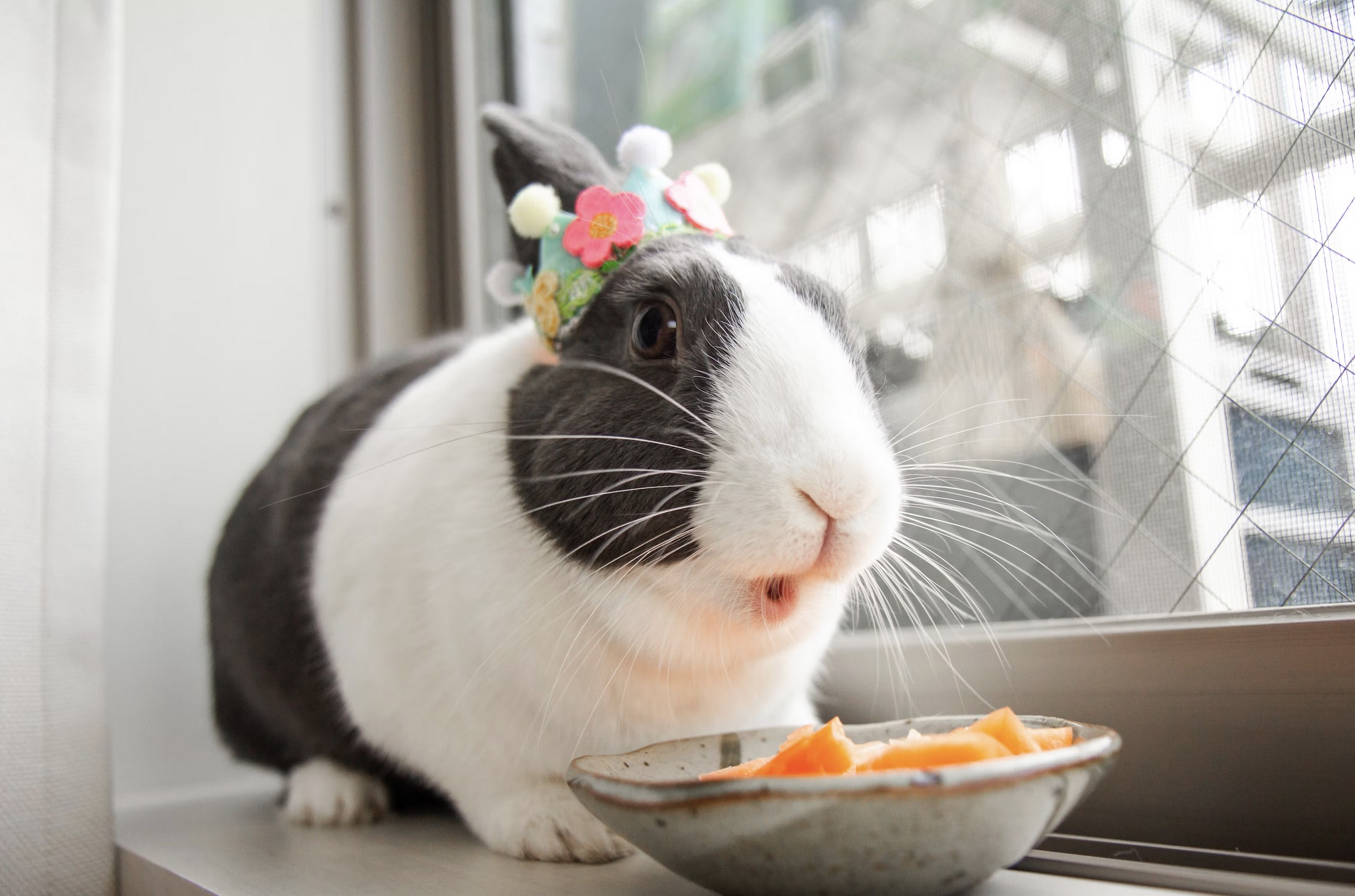Rabbits are herbivores, which means that they eat plants. Their diet should consist of 80% hay, 15% leafy greens, and 5% pellets. It is important to provide your rabbit with a variety of foods to ensure that they are getting all the nutrients they need.
Hay
Hay is the most important part of a rabbit’s diet. It provides them with fibre, which is essential for their digestive system. Hay also helps to keep their teeth worn down. Timothy hay is the best type of hay for rabbits, but orchard grass hay and oat hay are also good options.
Leafy Greens
Leafy greens are a good source of vitamins, minerals, and antioxidants. Some good options for leafy greens include romaine lettuce, kale, collard greens, and spinach. It is important to wash leafy greens thoroughly before feeding them to your rabbit.
Pellets
Pellets should only make up a small portion of a rabbit’s diet. They should be high in fibre and low in sugar. It is important to choose pellets that are specifically formulated for rabbits.
Fruits and Vegetables
Fruits and vegetables can be given to rabbits as treats. Some good options include apples, bananas, carrots, and blueberries. It is important to limit the amount of fruits and vegetables that you give your rabbit, as they can be high in sugar.
Toxic Foods
There are a number of foods that are toxic to rabbits. Some of these foods include avocado, chocolate, onions, garlic, and chives. It is important to be aware of these foods and to avoid giving them to your rabbit.
Water
Rabbits need access to fresh, clean water at all times. You should change their water daily.
Feeding Schedule
Rabbits should be fed twice a day. You can give them a small amount of hay and leafy greens in the morning and a small amount of pellets and fruit or vegetables in the evening.
Grooming
Rabbits need to be groomed regularly. You should brush their fur daily to remove any mats or tangles. You should also trim their nails every few weeks.
Exercise
Rabbits need plenty of exercise. They should have a large cage or pen where they can run and play. You should also let them out of their cage for at least a few hours each day to exercise.
Vet Care
It is important to take your rabbit to the vet for regular check-ups. The vet will be able to check your rabbit’s health and make sure that they are getting the nutrients they need.
By following these guidelines, you can help to ensure that your rabbit has a long and healthy life.
Here are some additional tips for feeding your rabbit:
- Introduce new foods slowly. Start by giving your rabbit a small amount of new food and watch for any signs of digestive upset, such as diarrhoea or vomiting. If your rabbit does not have any problems, you can gradually increase the amount of the new food.
- Do not overfeed your rabbit. Rabbits are prone to obesity, so it is important to feed them the correct amount of food.
- Avoid giving your rabbit table scraps. Table scraps often contain high amounts of sugar and fat, which can be harmful to rabbits.
- If you are unsure about what food to give your rabbit, it is always best to consult with your veterinarian.
